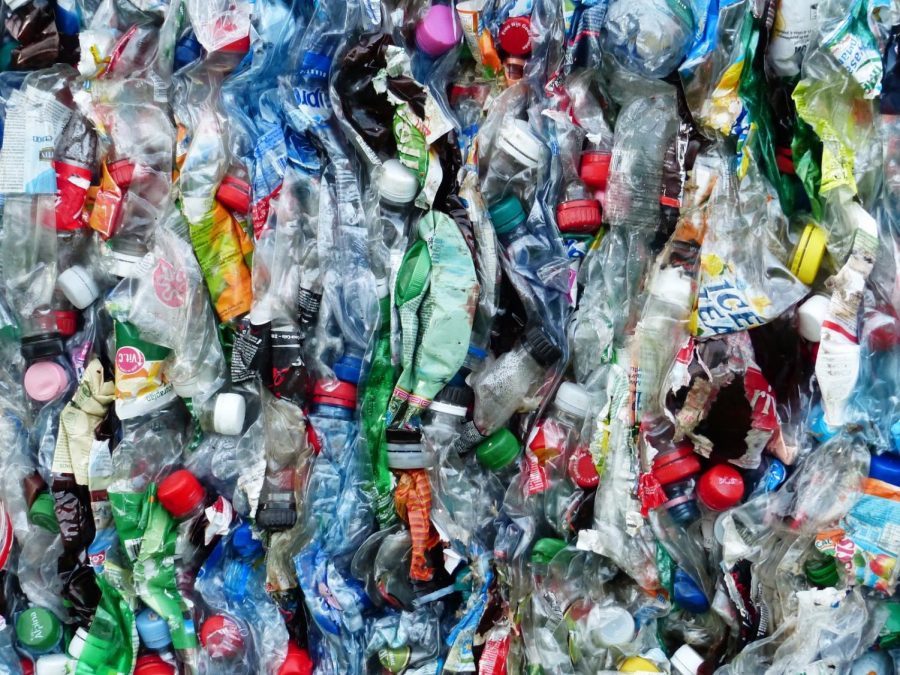City to collect bulk trash for free during some Fridays this fall
Photo courtesy of the Institute for Sustainability and Energy at Northwestern
A collection of crushed plastic bottles. Bulk trash pickup will be available for residents on Friday mornings in late September and early October, based on what day of the week regular trash collection happens for each household.
September 24, 2021
Evanston will pick up residents’ bulk trash for free on Fridays this fall.
Residents whose usual pickup is on Thursdays will have bulk trash pickup starting at 7 a.m. on Friday. Meanwhile, residents with a Monday trash pickup can put items out for bulk trash pickup on Oct. 1, and those with a Tuesday pickup are scheduled for Oct. 8.
At summer’s end, Northwestern students flocked in and out of off-campus housing, meaning September could be a big month for bulk trash and furniture pickup near the University. (Instead of throwing away furniture in relatively good condition, students can also hand it off on Northwestern’s Free & For Sale Facebook page or donate it to Evanston’s Goodwill Store & Donation Center.)
City and federal guidelines limit bulk trash pickup. Residents can’t throw away hazardous materials, electronics and appliances, tires or construction material. Items should be packaged neatly for pickup in closed boxes, with glass broken down and labeled separately.
Every household will be limited to six cubic yards of trash before bulk pickup begins to incur charges. Only condominiums with recycling contracts with the city are eligible for trash pickup. Condo residents can contact building management to see if their garbage is contracted through the city before putting out bulk refuse.
Residents can sign up for email or text reminders to be notified two weeks and again two days before trash pickup. The reminders are designed to aid residents with cleanup after moving houses, renovating or completing other major domestic projects.
Evanston is working toward a Climate Action and Resilience Plan designed to reach zero waste in the city by 2050, though waste management efforts have mostly centered around plastic in Lake Michigan so far.
Email: [email protected]
Twitter: @ilana_arougheti
Related Stories:
— Evanston, Chicago leaders talk fair housing and reparations in forum


